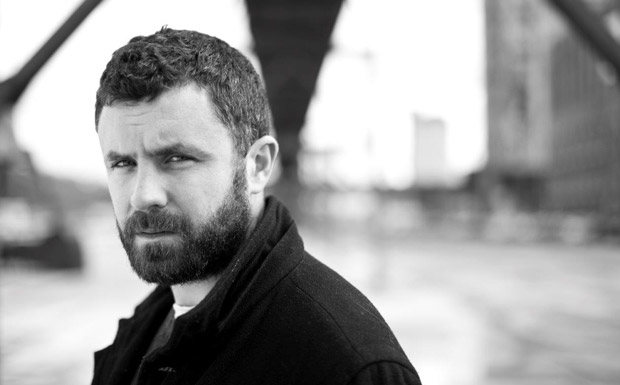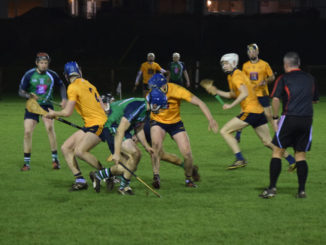
“I’m just one person, I have to look after my own life. I can’t save this stuff… so I’m gonna have a pint,” Mick Flannery tells me over the hubbub in the Dame Tavern, reaching for his Guinness.
There is a grin on his face that does not reach his eyes, and why would it? Human apathy in the face of injustices is the topic, and in particular how new album I Own You deals with it.
The eponymous lead single and album opener is Mick’s way of “raging against the capitalist ideal”, as he puts it. “Blue eyed ego, capitalist pig,” one line goes – it is the turning point where political anger becomes primal.
“The song is based on the idea that a man who has been undignified by society turns the tables on a wealthy, uncaring, greedy man,” Mick explains. “The culminating sentiment is that the poor man stands over the rich man and just says: ‘Now I own you’ – physically, even if only for this moment before the cops come.”
Indeed, Flannery name checks the deaths of Freddie Gray and Sandra Bland in police custody in America as inspirations. “To imagine if it were my son who was put to the ground and then killed on the way to being booked for nothing…” he grimaces, recalling the video of Sandra Bland “being brutalised for no reason”.
Flannery is at pains to point out his privilege in this situation. “I can’t say that I can understand the plight of a person of colour. I don’t think any white person should think they could,” he says.
When asked if touring has opened his eyes to these injustices a little more, he says: “I’d like to be able to say that I’ve inserted myself into black communities and that I could speak with authority. But I’m not speaking with authority really, I’m speaking from a… feeling point of view.”
It is no surprise to learn that Kendrick Lamar was top of the playlist while making the album. “It’s refreshing to hear storylines, narratives, social commentary mixed with that great rhythmic ability,” he says, enthusing about Lamar’s “great knowledge of the history of music”.
Hip-hop has played a greater role in informing this album’s sound. “ What I’ve always done is you start off kinda slow and the arrangement would creep in and come to a crescendo and that’s kind of a cop-out,” Mick says. “This buildup of stuff is interesting to the ear because it’s a new thing. It’s more difficult to have a fuller song from the beginning and keep it interesting.”
Though he shies away from linking his famed background in stone-masonry to his approach to songwriting – “a narrow way of looking at it,” he says – it is evident from his clear and methodological manner of speaking about bars and chord structure that this is the mind of a craftsman at work.
Even talking about his studio relationship with drummer Christian Best, Flannery almost sounds like a maths professor explaining his favourite theorem – Mick brings x to the table, Christian brings y, therefore this, ergo that.
“It can be mathematical,” he says of songwriting, “but much more freeform too.”
“What I find most interesting is the marriage between a melody and the lyrical sentiment and the closer you can get them to mesh – the sentiment reaches a crescendo just as the melody reaches a crescendo.”
Though Flannery describes his background as “middle-class,” he comes across as a man of few pretensions.
He laughs when we mention that he is unafraid to go play places like Inishbofin, which he visited during the summer. “It’s a bit of craic like. I enjoy it, small gigs, I still enjoy them.”
Later this month he will play Kavanagh’s Bar in Portlaoise before the Olympia Theatre in Dublin the next night – do these gigs require a different approach?
“A place like the Olympia would make you generally more nervous. When you have a place that’s 150 people it’s not considered unnatural to enter into a conversation with someone in the audience because everyone can hear what the person is saying, so everyone is involved,” he says, mentioning a greater “disconnect” in larger venues.
For bigger gigs, Mick explains: “the payoff is you get a greater energy back if it’s good, it’s going well, you get a buzz out of a big room… it can be intense. I don’t really look forward to one (kind of gig) more than the other really, but I do mark the differences.”
Stephen Keegan
[feather_follow]




Leave a Reply